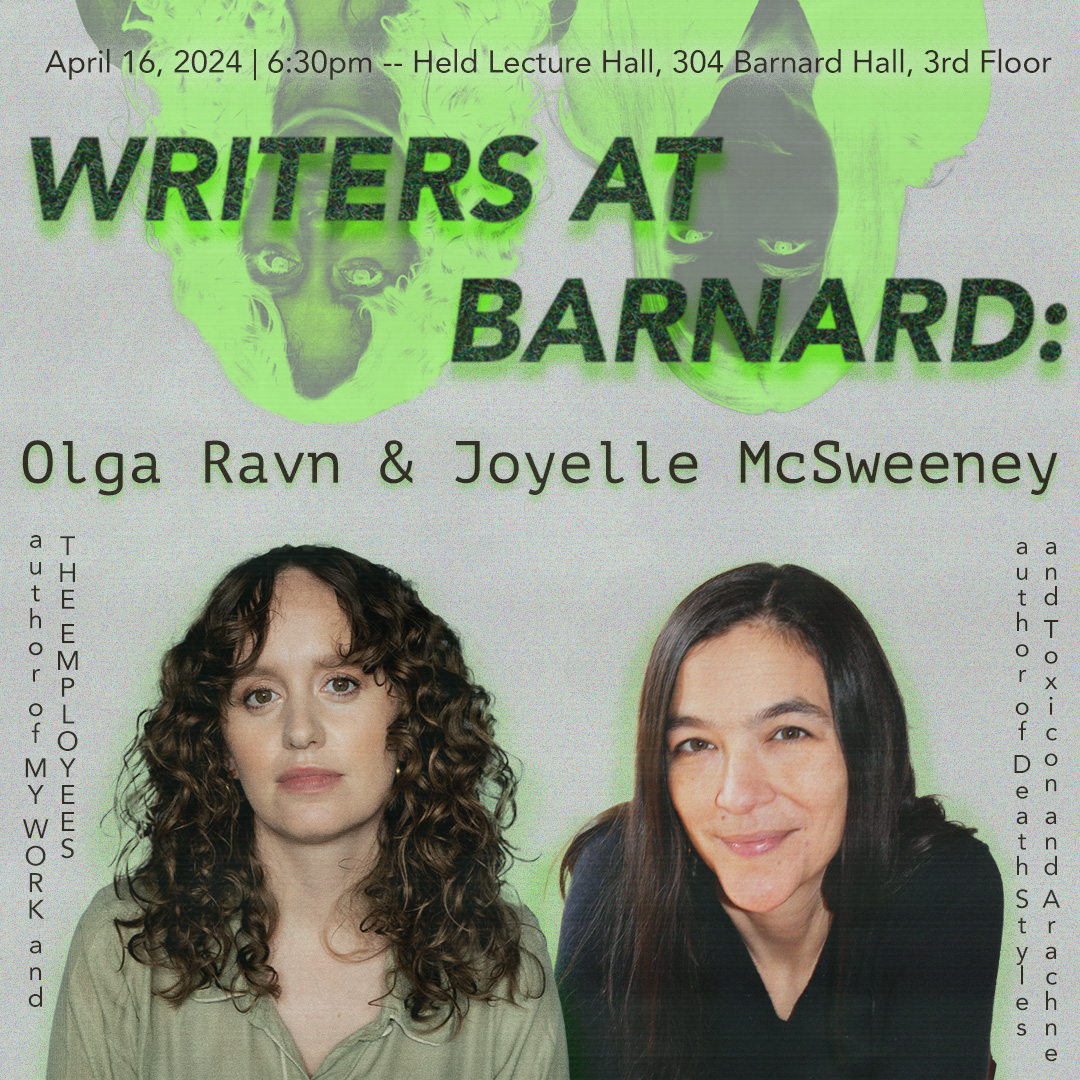The Barnard Creative Writing Program presents Olga Ravn and Joyelle McSweeney discussing playful new works about motherhood as abjection, madness, and body horror. International Booker Finalist Ravn follows her anti-capitalist space opera The Employees with her new book, My Work, which mixes diary, novel, and poetry to tell the story of a doom-scrolling new mother who buys clothes she can’t afford and finally forces herself to read and write. Joyelle McSweeney’s Toxicon and Arachne told a baroque elegy for her daughter that imagined the lyric as toxin. Her new book Death Styles sublimates her grief through poems exploring icons like Mary Magdalene, Terminator 2, and a cast from a goth fairy tale: dead swans, the moms of the underworld, and the poison daughters. Brilliant and terrifying, both writers ferociously capture the most nightmare of pregnancy and childbirth. In conversation with Associate Director of Creative Writing Ken Chen. Reserve a seat on Eventbrite here.
Danish novelist and poet Olga Ravn, born 1986, is the author of the International Booker Finalist The Employees, a speculative anti-capitalist office novel about workers on a 22nd century spaceship that the New York Review of Books called “weird, beautiful, and occasionally disgusting.” The author of the poetry collection Jeg æder mig selv som lyng: pigesind (I Devour Myself Like Heather) and editor of a new selection of Tove Ditlevsen’s texts, Ravn ran the feminist performance group and writing school Hekseskolen alongside Johanne Lykke Holm from 2015 to 2019. Writer Kate Zambreno writes that her newest novel, My Work, must “be read by absolutely anyone who has known the quiet madness and claustrophobic happiness of the interior, especially mothers who also long for a life of literature. But this novel absolutely needs to be read by everyone else as well. Oh Olga Ravn, always inventing new forms, you are a genius, how do you do it?””
Joyelle McSweeney’s last book Toxicon and Arachne was a ferocious, virtuosic exploration of grief over her daughter Arachne. “The power of McSweeney’s work cannot be separated from its association with forms of oracle and soothsaying,” poet Dan Chiasson wrote in The New Yorker. A 2022 Guggenheim Fellow for Poetry and a Professor of English at the University of Notre Dame, McSweeney’s books include The Red Bird, the verse play DeadYouth, or the Leaks, and her co-translation of Korean modernist Yi Sang’s Selected Works, with Jack Jung, Don Mee Choi, and Sawako Nakayasu, the winner of the 2021 Aldo and Scaglione Prize for a Translation of Literary Work. As poet Dolores Dorantes writes of her new book Death Styles, “The obviousness of (supposed) womanhood, the death of creativity intertwined with privilege, the suffering of ordinary life, its responsibilities, the guilt of living in a gilded cage, or the cage of motherhood: all these themes traverse the poetics of Joyelle McSweeney and forge, together, a terrifying, beautiful, utterly singular book.
